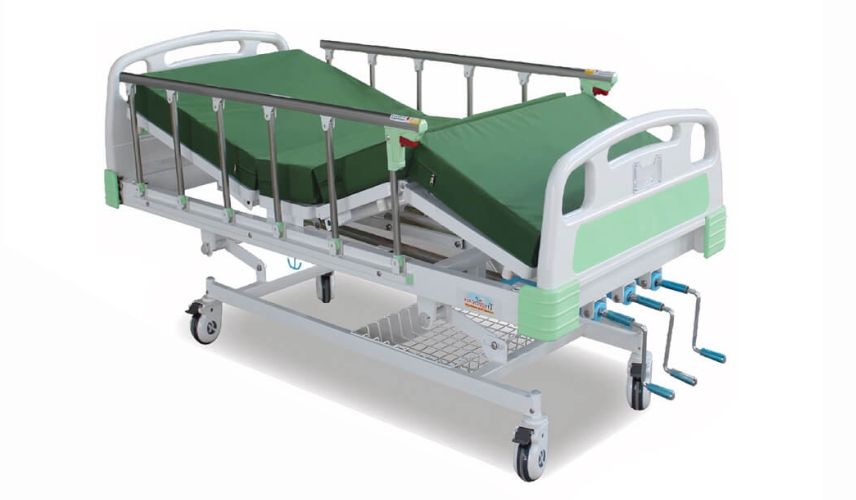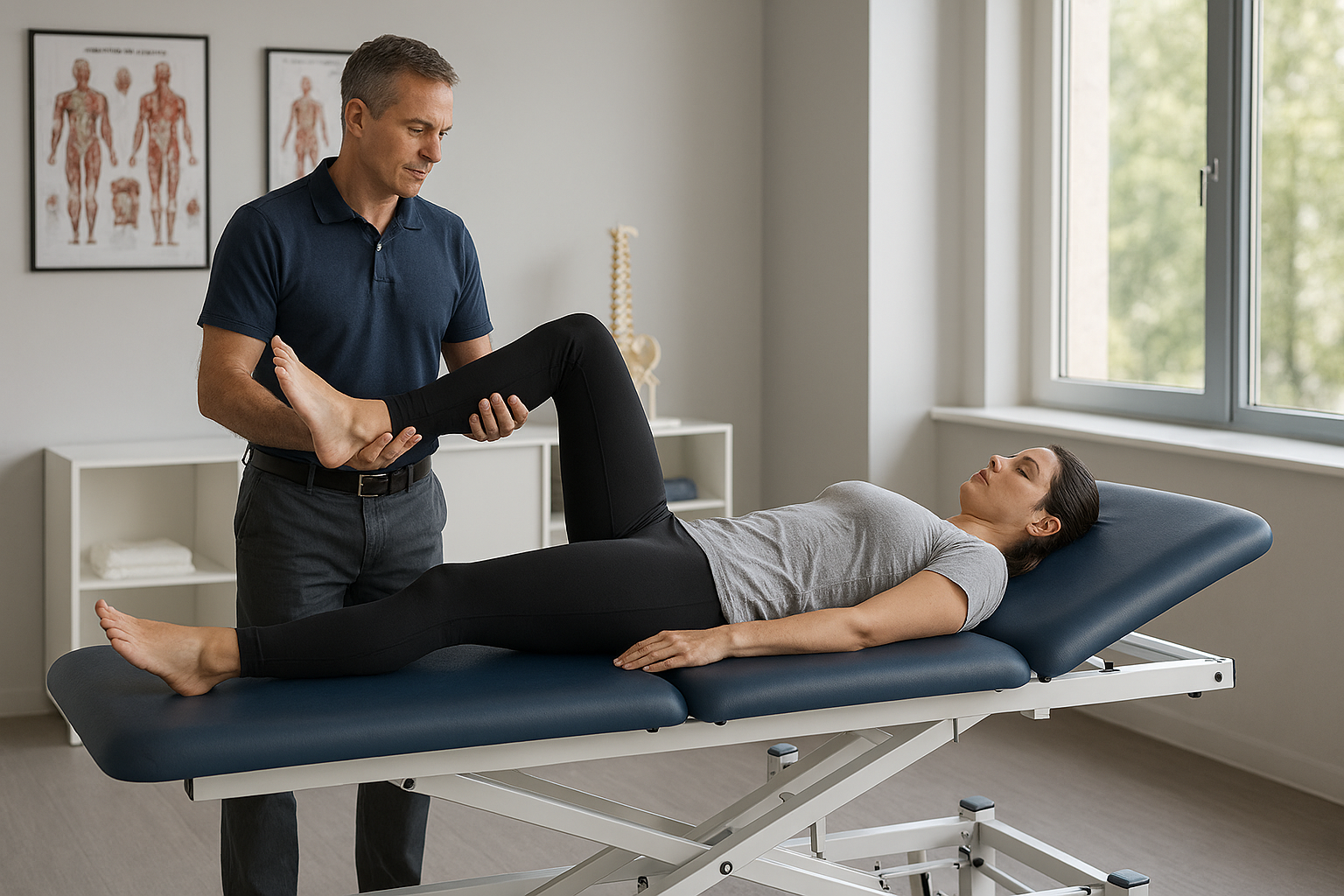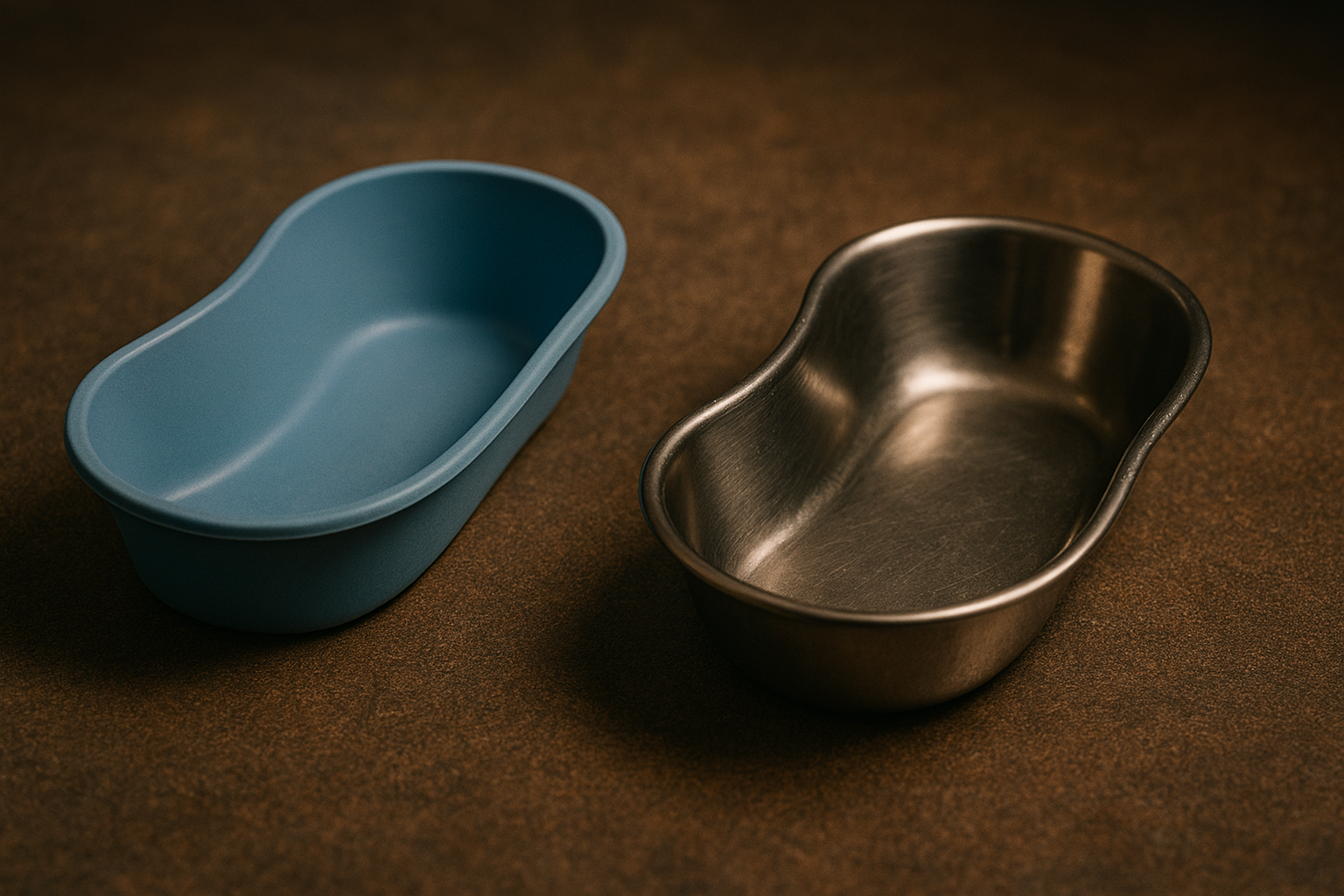Intensive care units (ICUs) are essential in the healthcare industry for giving critically sick patients specialised treatment. To guarantee their welfare, these individuals need ongoing observation and specialised care. The use of specialised ICU hospital beds is one of the main variables that contribute to the effective operation of an ICU. Modern technology and sophisticated features are included into the design of these beds to improve patient care and the hospital environment as a whole. The relevance of specialised ICU hospital beds and how they contribute to the best treatment for critically sick patients will be discussed in this blog.
The comfort and safety of patients are given first priority while designing specialised ICU hospital beds. In order to place patients in the most comfortable and appropriate postures, healthcare professionals can use features like adjustable footrests, backrests, and height adjustments. To promote patient safety and avoid unintentional falls, the beds also include adjustable side rails. For individuals who are immobile or have restricted movement, these characteristics are very crucial.
Advanced monitoring systems are incorporated into ICU hospital beds, allowing medical staff to closely monitor the physiological parameters and vital signs of critically sick patients. Built-in sensors in these beds continually track variables including heart rate, blood pressure, oxygen saturation, and respiration rate. These monitoring devices’ real-time data help medical personnel to quickly identify any possible worsening in a patient’s condition.
The seamless integration of hospital information systems with specialised ICU beds allows for the automated transfer of patient data to electronic medical records. With the handwritten paperwork no longer necessary, there is less potential of human error, and the healthcare team can communicate more effectively.
Patients who are in critical condition frequently spend lengthy hours in bed, which can result in the growth of pressure sores or bedsores. Advanced pressure redistribution devices that relieve pressure on the body’s most susceptible places are built into specialised ICU hospital beds, lowering the likelihood of bedsores. To reduce the likelihood of pressure-related injuries, these beds employ air-filled or foam-based mattresses that automatically alter the pressure distribution. These mattresses’ dynamic design makes sure that pressure is distributed uniformly, encouraging ideal blood flow and improving patient comfort.
ICU hospital beds are made to make it easier for patients to move about and to make carer chores more effective. Many specialised beds come with features like motorised placement, which makes it simple for medical professionals to adjust patients without the need for physical lifting. This feature not only lowers the possibility of strain and harm to carers but also improves patient comfort when undergoing operations like bed bathing, treating wounds, and turning.
Additionally, these beds frequently include built-in medical gas and electrical plugs, making it simple to connect and use bedside medical equipment and gadgets. This feature makes medical treatments more convenient and accessible, enabling healthcare professionals to treat patients in need of immediate attention quickly and effectively.
Critically sick patients need the best care possible, which is made possible by specialised ICU hospital beds. The comfort, safety, and effective delivery of healthcare are prioritised by these beds’ cutting-edge features and technology. Patients receive the best treatment possible while having the least amount of difficulties because to the integration of cutting-edge monitoring systems, pressure redistribution mechanisms, and carer support elements. United Poly is dedicated to provide medical facilities cutting-edge ICU hospital beds that aid in the wellbeing and healing of critically ill patients. Hospitals may develop a setting that supports excellence in critical care and encourages good patient outcomes by investing in these specialised beds.






